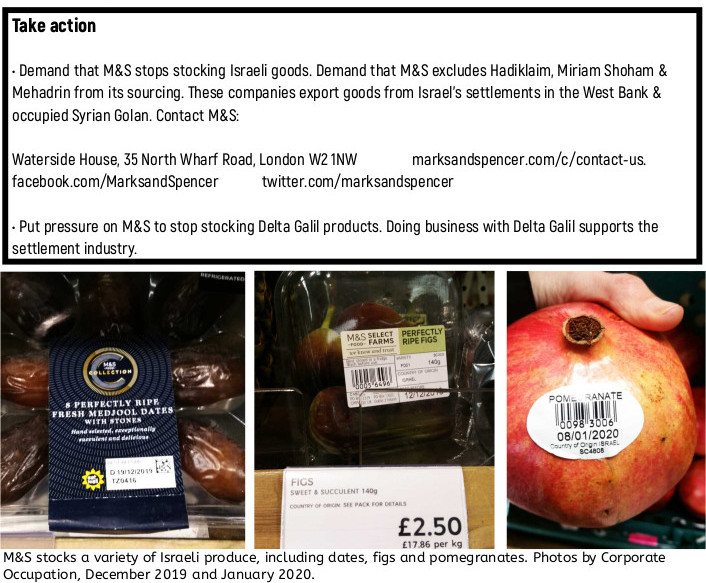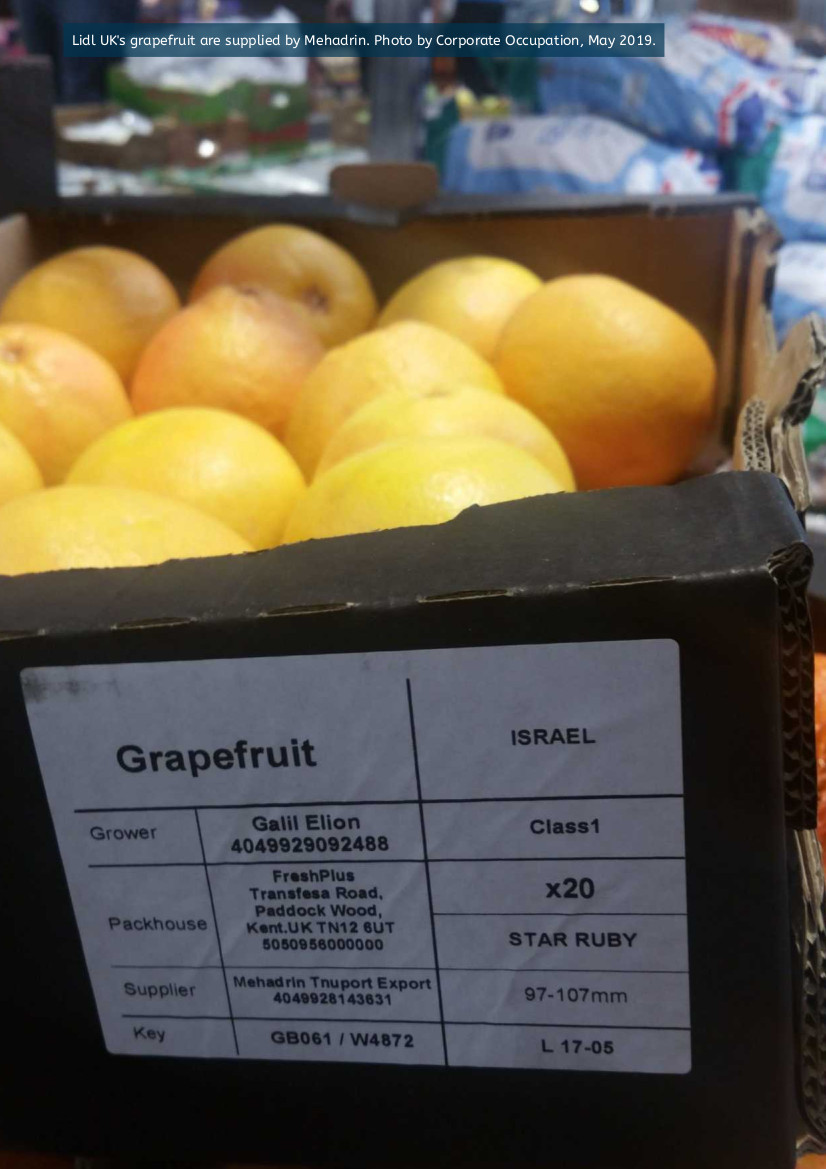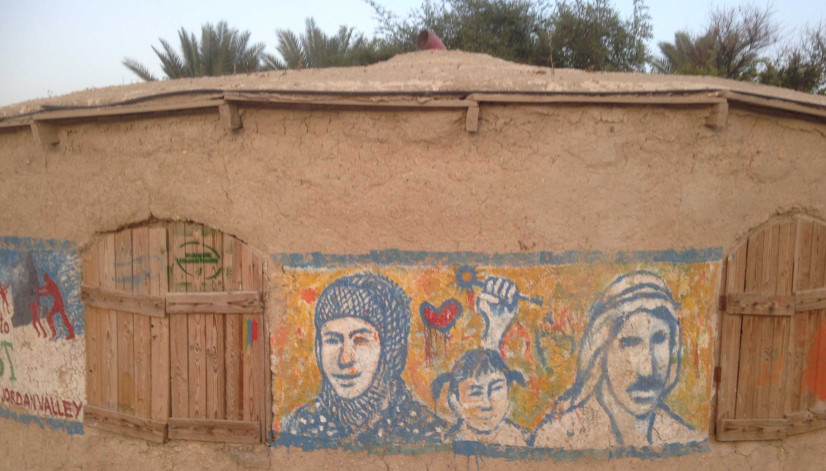M&S has faced protest due to its historical ideological support for the Israeli state, and because of its continued policy of stocking Israeli goods.
Until 2008 M&S openly sold products from illegal Israeli settlements. The Guardian reported in 2004 that the company stocked an extensive range of settlement products. Since 2008, however, M&S has made repeated statements claiming that it does not stock goods from the Occupied Territories.
In 2008, the store wrote: “We do not buy products from the West Bank, Golan Heights or Gaza as we cannot safely visit the suppliers in these areas because of the current security situation.”
It seems probable that the move to cease selling settlement products was, in fact, due to effective campaigning, protests and fear of adverse press coverage. However, since then the store continues to stock Israeli goods, including goods sourced from companies that operate in Israel’s settlements in the West Bank.
In correspondence with the School of Oriental and African Studies in 2008, David Gregory, Technical Food Director for M&S, stated the following: “In the past, we have sold dates from this region. However, we made a policy decision sometime ago to cease all purchases from this area. However, our UK suppliers do buy raw material (dates) from the organisation Hadiklaim on our behalf. The contract explicitly prohibits purchase from Palestinian Territories and Hadiklaim source the dates from elsewhere within Israel to satisfy our requirements. Traceability systems are in place to confirm the source of the dates.”
Gregory’s response does not take into account that by stocking goods from Hadiklaim, even if the dates stocked by M&S are from within Israel’s 1948 borders, it is supporting a company which operates in Israel’s settlements in the Jordan Valley and heavily exploits the Palestinian workforce, who are paid a pittance to do dangerous work high up on date palms. In 2019, Hadiklaim confirmed that it still supplies M&S with dates (see page 36). In 2019, we spotted ‘Produce of Israel’ dates in the supermarket.
Historical support for Zionism
Historically, M&S has made statements in support of Zionism. Lord Sieff, chairman and founder of M&S who died in 2001, made several statements in support of Israel’s military policies. In 1941, Sieff said that “large sections of the Arab population of Palestine should be transplanted to Iraq and other Middle-Eastern Arab States”(Jewish Chronicle, 21/09/1941). In 1990, Sieff, in a book titled ‘On Management: The Marks and Spencer Way”, wrote that one of the fundamental objectives of M&S was to “aid the economic development of Israel.”
There have been no reports of M&S openly showing ideological support for Israel since 2004. The retail company has repeatedly asserted that “[it has] no ‘special’ relationship with any government, political party or religious group” but accepts that M&S does “make representations to governments in support of [its] commercial aims.” M&S management has not, to our knowledge, commented on Lord Sieff’s remarks in support of Zionism and has not made a statement as to whether the current management stands by them.In 1998, Sir Richard Greenbury, then CEO of M&S, received the Jubilee Award from Israeli Prime Minister Benjamin Netanyahu.
In 2000, the Jerusalem Report stated that “M&S supports Israel with $233 million in trade each year.” In October 2000, the Jewish Chronicle reported that the British-Israel Chamber of Commerce (B-ICC) had held meetings at M&S’s offices in Baker Street and in December 2004, Stuart Rose, CEO of M&S at the time, was a listed speaker at the annual dinner of the B-ICC.[1]
M&S stocks underwear manufactured by Delta Galil, [2] a company which operates a factory in the Barkan settlement industrial zone.[3]
During 2019, Corporate Occupation researchers photographed Israeli ‘Maris Piper’ potatoes on sale in an M&S store, as well as Israeli figs. We also spotted red grapefruit supplied by Mehadrin, one of the key Israeli companies sourcing from settlements (see page 26). In January 2020 we photographed Israeli pomegranates in the store.
Israeli company Miriam Shoham is certified with an M&S Field to Fork certificate. Miriam Shoham has a packing house in the Israeli occupied Syrian Golan (see page 32). Shoham is part-owned by Mehadrin.




0 Comments